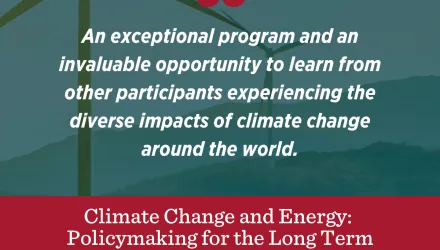This paper approaches the topic of U.S.-China energy cooperation primarily from the U.S. point of view, tracing and evaluating U.S. activities that have affected China's energy supply system since 1980. The U.S. actors examined are the government, the private sector, and the multilateral development banks (MDBs). The adequacy, effectiveness, and benefits of each actor's efforts are evaluated. Other criteria and standards for measuring energy cooperation are proposed. In addition, the different actors are compared with each other and their combined influence on the Chinese energy system is considered. The paper concludes by drawing lessons for future U.S.-China energy cooperation.
The main conclusions from this review of U.S.-China energy cooperation are that the United States has established workable mechanisms for cooperating with China on energy matters and that the U.S. has certainly influenced Chinese energy development during the past two decades, mostly for the better. From examining the U.S. government, private sector and multilateral development banks separately, it can be seen that the private sector and development banks have had the most quantifiable impact on Chinese energy development. This is because they directly invest money, contribute to the physical construction of energy infrastructure, and actually deploy more advanced energy technologies in the Chinese energy system. The U.S. government has a different kind of influence that is less quantifiable and often more indirect. For example, the U.S. government can influence the substance and direction of Chinese policies, foster the development of human capabilities, and create formal mechanisms for cooperation. Overall, the amount of energy cooperation is probably insufficient compared with the scope of the looming health and environmental challenges in China. Therefore, in addition to increasing the total amount of cooperation, U.S. actors could shift their focus to cleaner fuels and technologies to address those threats.
Gallagher, Kelly. “U.S.-China Energy Cooperation: A Review of Joint Activities Related to Chinese Energy Development Since 1980.” Belfer Center for Science and International Affairs, Harvard Kennedy School, November 1, 2001





